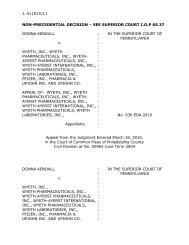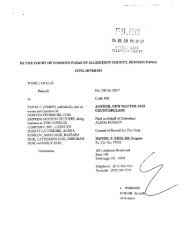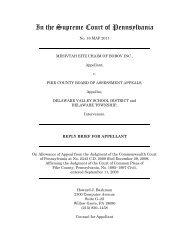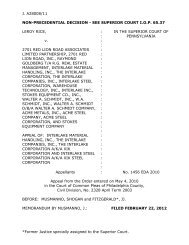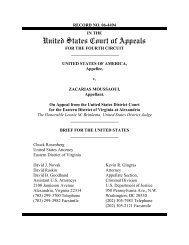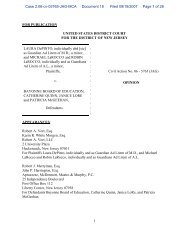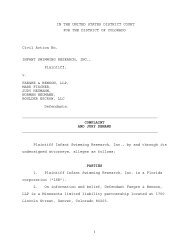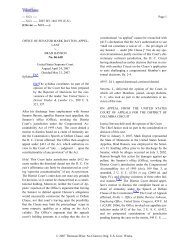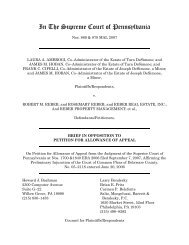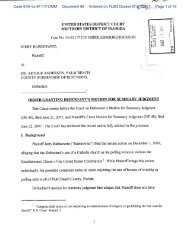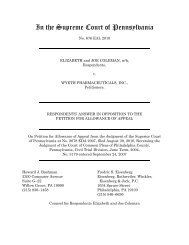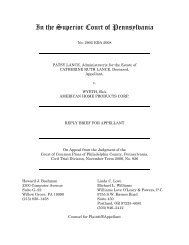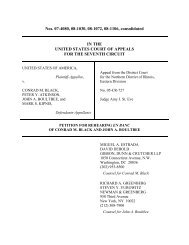Stone v. Bear, Stearns & Co., Inc. - How Appealing
Stone v. Bear, Stearns & Co., Inc. - How Appealing
Stone v. Bear, Stearns & Co., Inc. - How Appealing
You also want an ePaper? Increase the reach of your titles
YUMPU automatically turns print PDFs into web optimized ePapers that Google loves.
Case 2:11-cv-05118-LDD Document 22 Filed 05/29/12 Page 18 of 35<br />
Therefore, by insisting on proof “powerfully suggestive of bias” before vacating an arbitration award,<br />
we honor the policy underlying the Federal Arbitration Act, namely to make “arbitration a swift,<br />
inexpensive, and effective substitute for judicial dispute resolution.” Leatherby, 714 F.2d at 683.<br />
Here, we have no difficulty concluding that <strong>Stone</strong> has failed to show circumstances so<br />
powerfully suggestive of bias that a reasonable person would have to believe that Marston was partial<br />
to Respondents. Remember, “failure to disclose,” in and of itself, is not a basis for vacating an<br />
arbitration award. Instead, Marston’s alleged non-disclosure of her husband’s business dealings has<br />
relevance in the vacatur context only to the extent that the non-disclosure reveals evident partiality<br />
against <strong>Stone</strong>. See Scandinavian Reinsurance <strong>Co</strong>. Ltd. v. Saint Paul Fire & Marine Ins. <strong>Co</strong>., 668 F.3d<br />
60, 76-77 (2d Cir. 2012) (remarking that courts should not “vacate an award solely because an<br />
arbitrator fails to consistently live up to his or her announced standards for disclosure, or to conform<br />
in every instance to the parties’ respective expectations regarding disclosure. The nondisclosure does<br />
not by itself constitute evident partiality. The question is whether the facts that were not disclosed<br />
suggest a material conflict of interest.”).<br />
Here, Marston tried twice to disclose her husband’s securities industry ties to FINRA. This is<br />
not the conduct of someone with a hidden agenda. It is regrettable that <strong>Stone</strong> did not receive the<br />
information beforehand, during the arbitrator selection process. <strong>How</strong>ever, because the statutory<br />
grounds for vacatur focus on the arbitrator, not the parties, what Marston disclosed (or tried to<br />
disclose) has much more probative value than what <strong>Stone</strong> actually received. In other words, the fact<br />
that FINRA sent <strong>Stone</strong> a less-than-complete ADR for Marston says little about Marston’s feelings<br />
about <strong>Stone</strong> or Respondents in this case. See Lucent Techs. <strong>Inc</strong>. v. Tatung <strong>Co</strong>., 379 F.3d 24, 26-27<br />
(2d Cir. 2004) (citing with approval district court’s opinion that vacating award “where the arbitrator<br />
has disclosed potential conflicts of interest to the [arbitration association] but the [association]<br />
18



